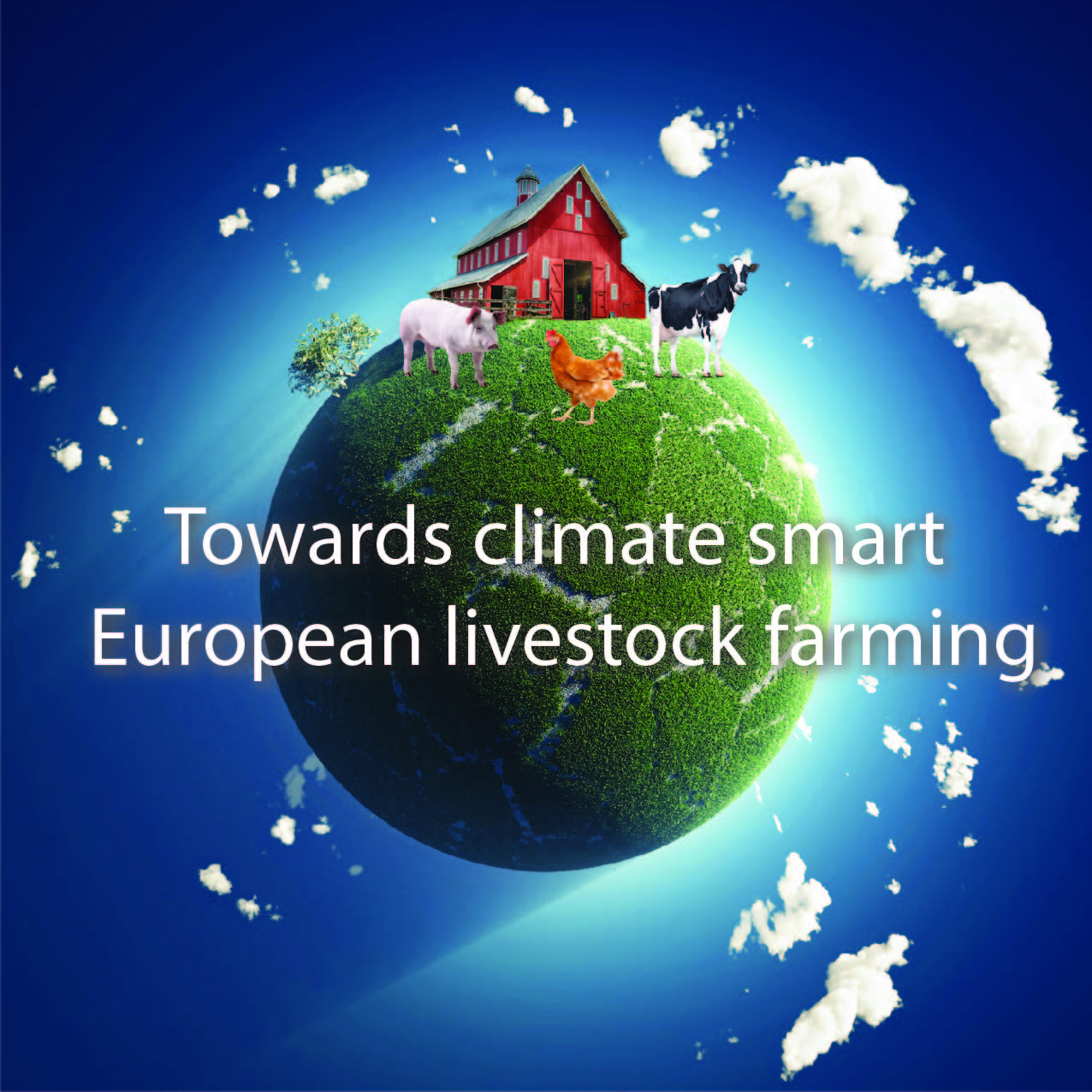Topic 2019

International climate agreements, like COP21, have initiated a new era for climate policies. The livestock sector has potential to contributing to mitigating climate impact. In the EU, the sector accounts for 40% of global agricultural emissions or 7% of total emissions, producing about 2,400 Mt of CO₂ equivalent annually, but also methane and NO₂. Enteric emissions, emissions from manure and land use change (LUC) due to deforestation for feed production are among the principal contributors.
Thanks to significant efforts, the livestock sector in Europe is starting to contribute to mitigation of climate impacts (SDG 13). R&I, new technologies and relevant incentives to implementation of best practices may enable the livestock sector to come close to CO2 neutrality for monogastrics and to achieve a 40% reduction for ruminants. Ways to proceed include e.g. implementing mitigation options and enhancing carbon storage under grasslands soils.
Climate targets should be integrated into a holistic approach to avoid trade-offs and foster a sustainable use of resources, preservation of biodiversity and improvement of soil quality. Future solutions need to optimise multiple factors through a systems approach, which takes into account the interplay between the system components.
7th ATF-EAAP special session
26 August 2019 – Ghent, Belgium
Since 2013, the ATF-EAAP Special Session during the EAAP Annual Meeting aims to bring together animal science with practice of animal production and connect researchers, policymakers, industry representatives and societal organisations. Every year, a different topic is addressed during this session.
Welcome and introduction, by Jean-Louis Peyraud, ATF President, & Matthias Gauly, EAAP President
Setting the scene
- Climate impacts of the livestock sector and development of effective EU policy, by Simon Kay, DG Clima/European Commission
- Can we achieve climate targets avoiding trade-offs with biodiversity?, by Sébastien Treyer, IDDRI
Implementation of climate mitigation options
- Farmers adopting innovative best practices, by Josselin Andurand, Idele
- Industry committed to achieving mitigation targets, by Charlotte Thy, Danish Crown
- Options at system level & expected mitigation potential, by Martin Scholten, Global Research Alliance
Improvement of evaluatuion methods
- Building consensus on methodologies for the assessment of environmental performance, by Camillo de Camillis, FAO-LEAP Partnership
- Panel discussion, moderated by Vivi H. Nielsen, ATF Vice-President
Session closing, by Jean-Louis Peyraud, ATF President
9th ATF seminar
6 November 2019 – Brussels, Belgium
Welcome and introduction, by Jean-Louis Peyraud, President of the Animal Task Force
- Public policies: Expectations towards livestock farming, by Bas Eickhout, Member of European Parliament
- Demand driving food system, by María Sánchez Mainar, FIL-IDF
- Taking another look at methane, by John Lynch, Oxford University
- The environmental footprint of animals foods: beware of simplifications, by Frédéric Leroy, BAMST
- C sequestration in soils, restoration of abandoned lands with pastures, legumes and animals, by Tiago Domingos, Terraprima
- IPCC report: expectations towards livestock farming, by Jean-François Soussana, INRA
Panel discussion, moderated by Martin Scholten, WUR
Closing remarks, by Jean-Louis Peyraud, ATF President
